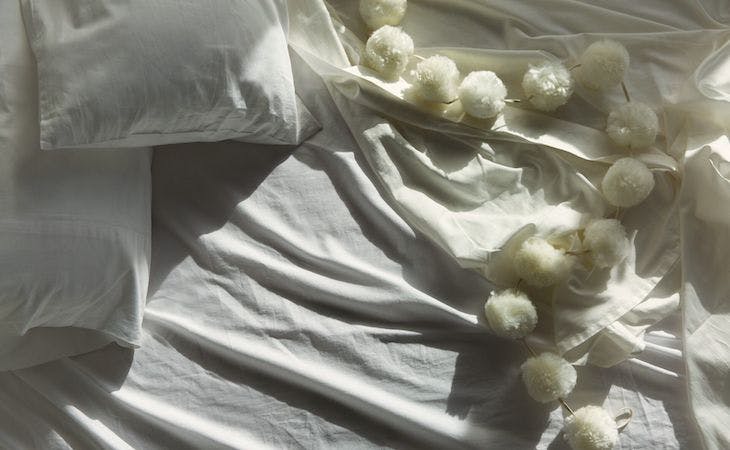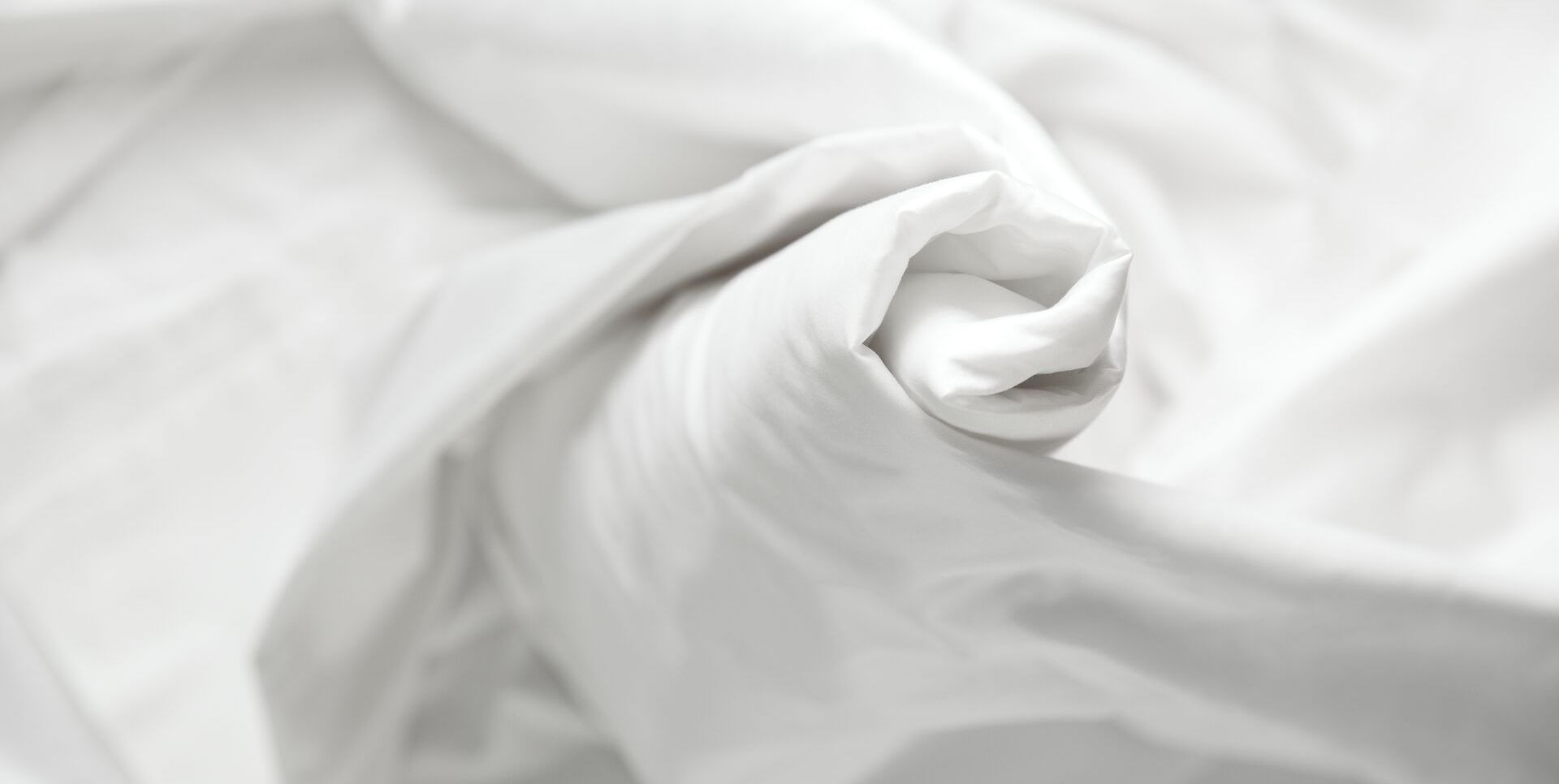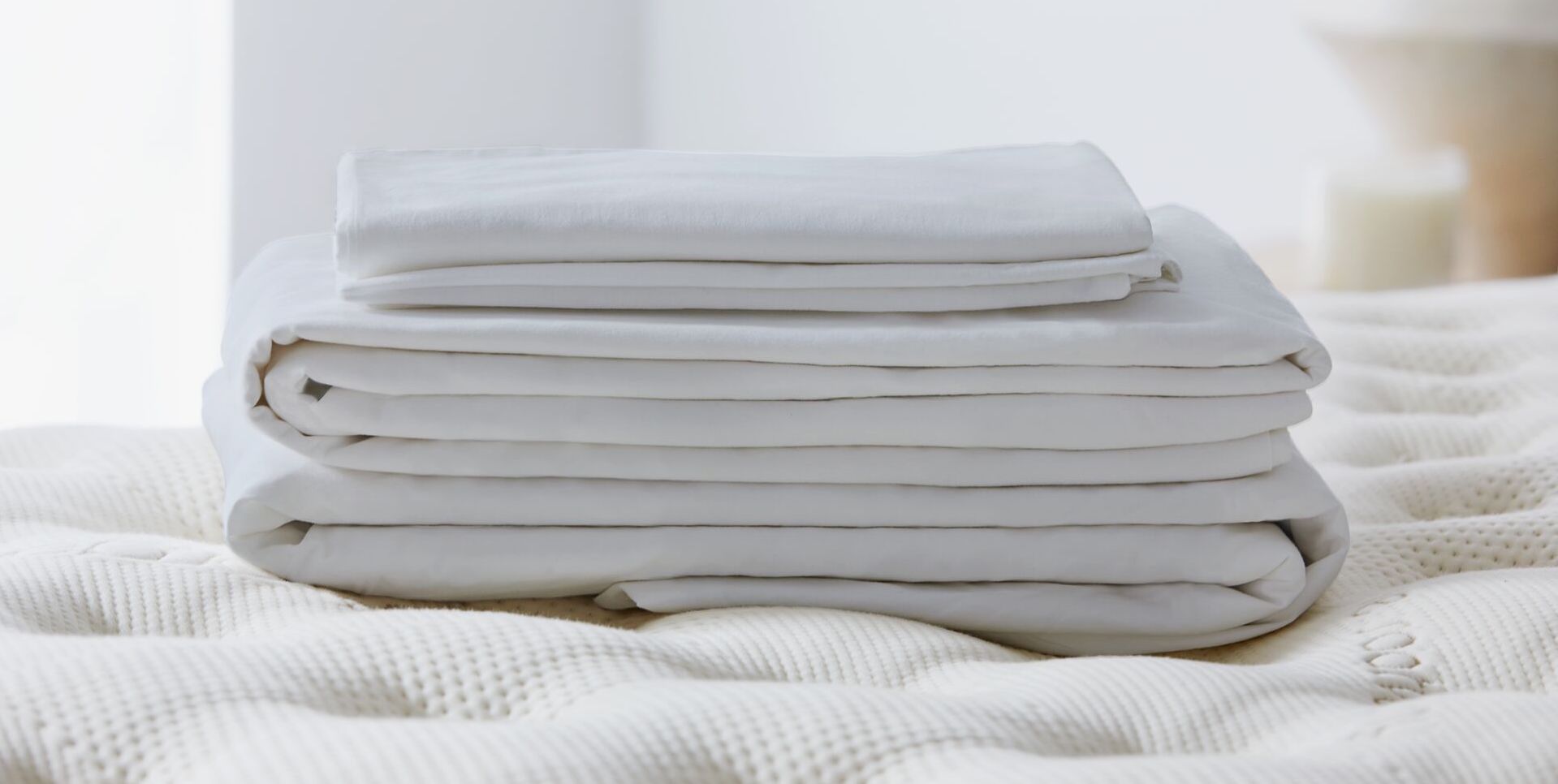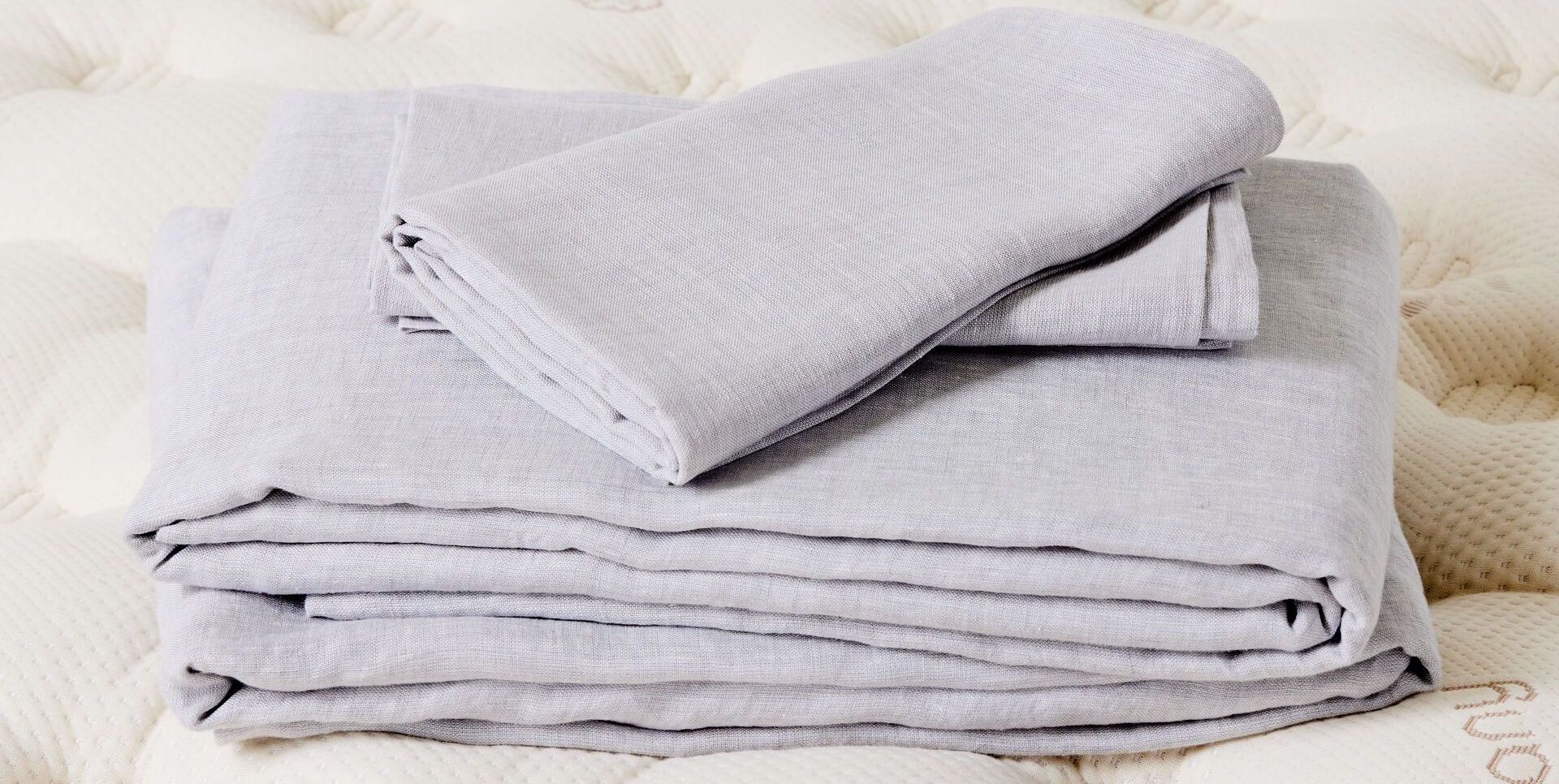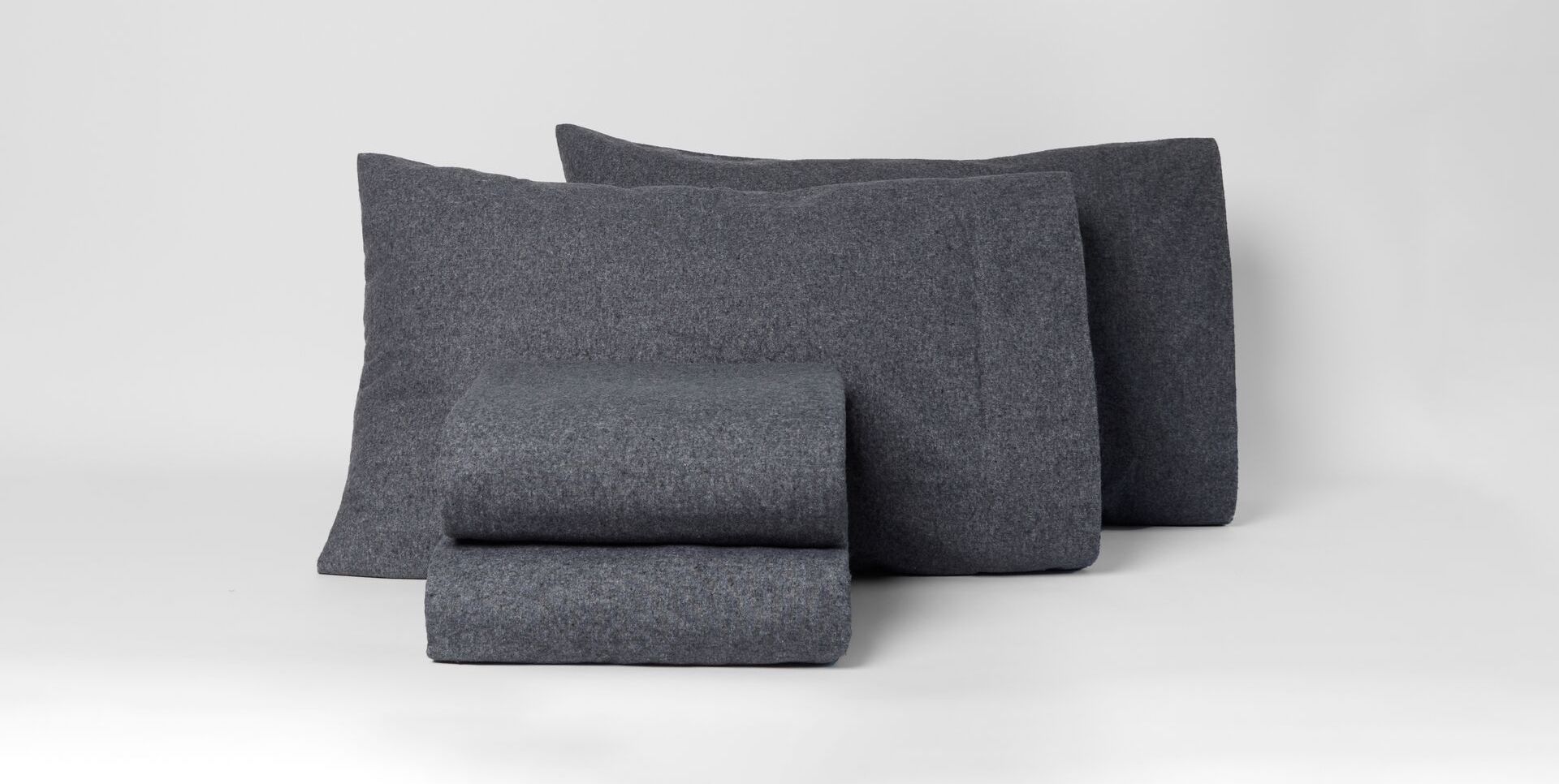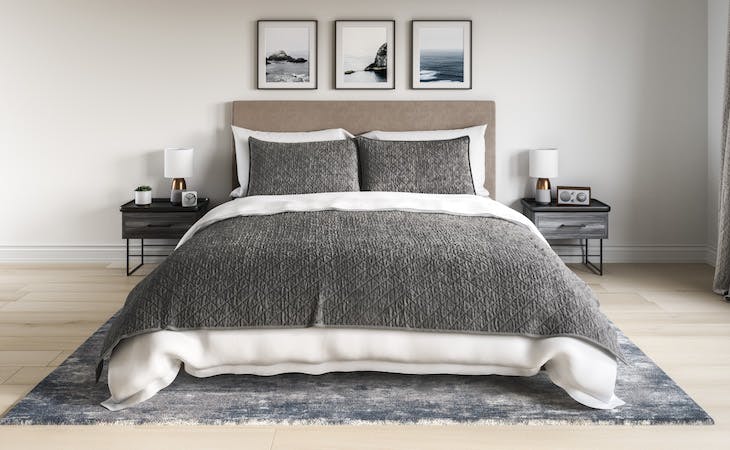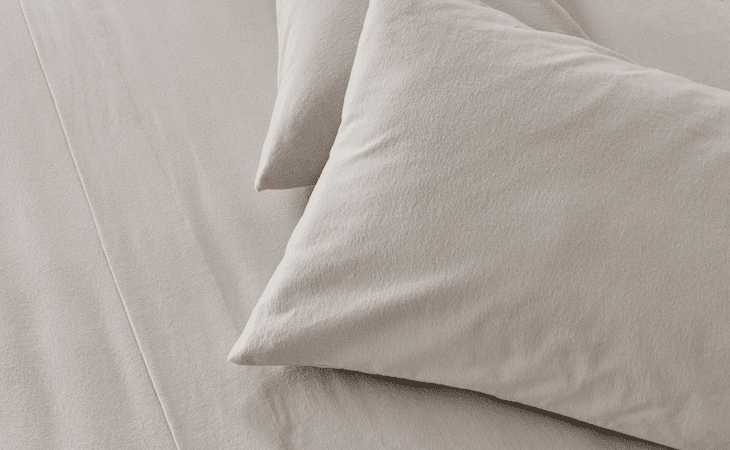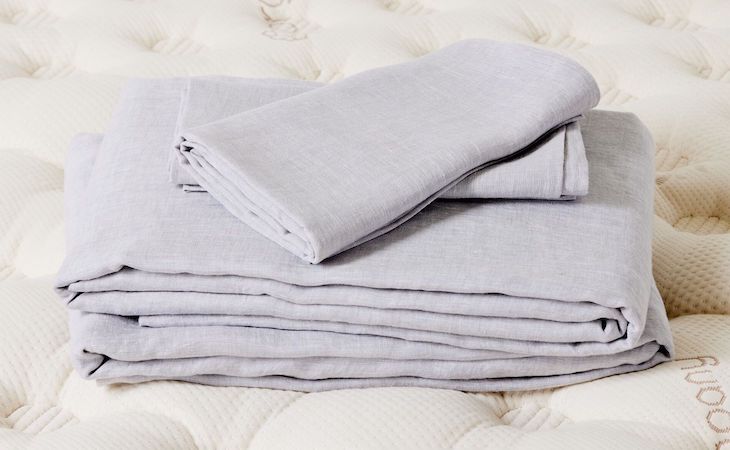Nothing’s better than snuggling up into your soft and cozy bed sheets at the end of a long day. But if your sheets aren’t exactly made from the softest material, then getting into bed may not be such a pleasurable experience. In fact, scratchy sheets might even make it difficult for you to fall—and stay—asleep.
To help you find the softest sheets on the market, we’ve outlined the ideal materials, thread count, and other properties of ultra-soft bed sheets.
The softest bed sheet materials
There are some ideal materials you should consider if you want to upgrade to a super-soft bed sheet set. Essentially, you should choose natural fibers for your fitted sheets and flat sheets.
Here are some materials you should look out for:
- Cotton
- Linen
- Bamboo
- Microfiber
- Jersey
- Silk
- Tencel
- Flannel
- Fleece
Cotton
Cotton is one of the most common, and softest, bed sheet materials on the market today. Cotton is a long-lasting, durable material that gets softer with every wash. It also tends to be temperature-regulating and has moisture-wicking properties to help reduce allergens.
There are a few different types of cotton sheets with notable differences from one another:
Sateen sheets feel silky and soft. A sateen weave uses 100% cotton with a typical thread count of 300 to give you a lustrous and soft feel.
Percale sheets are more cooling and soft. A percale weave uses 100% cotton, gets softer over time, and usually has a thread count of 200 or more.
Both percale and sateen sheet sets are great options. However, you’ll want to avoid synthetic cotton blends, like rayon or viscose, as they tend to be scratchy and can irritate sensitive skin.
Linen
Linen is a hypoallergenic, natural fiber that excels at regulating body temperature, absorbing moisture, and keeping you dry at night. This makes it a great option for hot sleepers or those with allergies.
Linen has a reputation for being coarse—but while it might feel rougher than other fabrics initially, it gets softer with every wash. Look for linen sheets that come pre-washed for extra softness from the very beginning.
Bamboo
Bamboo is a natural fabric that’s soft, smooth, and cool to the touch. It’s a very breathable material that will help prevent you from overheating. Bamboo is also a great option if you’re looking for a soft set of eco-friendly cooling sheets.
Just note bamboo sheets may not be great for the winter or for people living in colder climates.
Microfiber
Microfiber is a wrinkle-free fabric made of very fine fibers of polyester. Microfiber sheets are usually very soft and can resist pilling. However, polyester isn’t as breathable as natural fabrics, so it’s not the best choice for people who sleep hot or those with sensitive skin.
Brushed microfiber is also a great option for soft sheets. These sheets are double-brushed and feel more like flannel or fleece. They remain breathable and will still keep you warm in the winter months.
Jersey
Cotton jersey is a fabric that’s knit rather than woven. The flat knit is what makes it soft and stretchy. Jersey sheets won’t have the crisp feel of woven cotton or the smoothness of silk or bamboo, but they’ll appeal to those who like sleeping in their comfiest T-shirt.
Silk
Silk is a 100% natural fabric made from the secretions of a silkworm. It’s soft, smooth, and lightweight. Silk sheets and pillowcases are excellent for people who have sensitive skin. These luxurious sheets have a buttery feel to them and are also hypoallergenic.
Just keep in mind silk doesn’t absorb moisture as well as cotton or linen. If you’re not generally a sweaty sleeper, then that might not be a problem—but if you do tend to sleep hot, then silk sheets might not be right for you.
Tencel
Tencel is a material very similar to cotton. It uses natural lyocell to enhance its natural temperature regulation and moisture-wicking properties. It also offers a soft and luxe feel while still remaining durable.
Flannel
Flannel sheets are comfy, cold-weather favorites. They’re naturally soft to the touch due to the process called “napping,” during which the woven sheet of fabric is brushed by thousands of tiny metal brushes.
The tiny fibers pulled from the fabric create millions of small insulating air pockets that retain body heat (that’s why flannel always feels warm) and make it feel soft. To get the best out of your flannel sheets, opt for 100% cotton double-napped (brushed on both sides) sheets.
Fleece
Fleece is a knitted material (not woven like most fabrics) made of synthetic fibers with an incredibly soft feel. Fleece sheets are thicker than sheets made from other fabrics and tend to retain body heat, which could be good or bad, depending on how warm you sleep or the climate you live in.
There are several types of fleece, including microfleece (quite thin and lightweight) and polar fleece (much warmer and thicker). While fleece is soft, know that it’s a synthetic material, meaning it won’t have the breathability of natural fabrics.
Soft sheets: what else to look for
Material isn’t the only thing that matters when it comes to soft sheets. You’ll also want to consider the ideal thread count, weave pattern, fiber length, and ply.
Before making your final decision on what the best sheets for you are, let’s take a deeper look at these properties.
Thread count
Thread count refers to the number of threads woven per one square inch of fabric. It’s important to note that thread count is only really relevant for cotton bedding. Most people mistakenly think that thread count is the best indicator of the quality and softness of sheets. However, thread count figures can be misleading.
The problem is that to get to higher thread count figures, manufacturers use thinner yarns twisted together (often yarn that has been split so that it can be counted as two threads instead of one). You’ll often see bedding made from four-ply yarn marketed as 1,000 thread count when in reality it’s actually 250 thread count.
High thread counts above 400 will make for a sheet that’s less breathable, less durable, and coarser (because of the fibers poking out of the weave). Ideally, you’ll want to opt for 200 to 400 thread count sheets.
Weave
Weave itself is not an indicator of quality, but you should pay attention to it because different types of weave produce fabrics with a different feel to them. Percale and sateen are the two most common types of weave, both producing excellent sheets.
Sateen is a one-yarn-under, three-yarn-over weave that tends to produce fabrics that are silkier and heavier, while percale (a one-yarn-over, one-yarn-under weave) produces sheets that are crisper, lighter, and more breathable. If you’re after silky-soft sheets and don’t mind the slightly reduced breathability, go with the sateen weave.
Fiber length
Longer fibers tend to produce a smoother and softer fabric that’s also stronger and more durable.
Ply
Ply refers to the number of fibers twisted together into a single thread. Always go for a fabric made from single-ply yarn. Two-ply or other multi-ply yarns create fabrics that are coarser, heavier, and less durable.
FAQs
What material for sheets is the softest?
Cotton is one of the most common, and softest, bed sheet materials on the market today. You can also choose from an array of other materials including linen, bamboo, silk, and flannel for a soft and cozy feel.
What thread count makes the softest sheets?
For softer and longer-lasting cotton sheets, you should opt for a 200 to 400 thread count. A thread count higher than 400 will make for a cotton sheet that’s less breathable, less durable, and coarser. Thread count doesn’t play a role in the quality or softness of other sheet materials.
Find the softest bed sheets on the market with Saatva
Finding high-quality and comfortable sheet sets can be difficult. Navigating all of the materials and thread counts can be overwhelming. Luckily, Saatva has the perfect solution.
Our wide range of sheets is made from ultra-soft, high-quality materials that’ll make you want to stay in bed all day. Check out our large selection of sheets and other bed accessories to upgrade your sleeping experience today.





